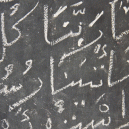In this level, the student will learn:
- Asking about names, countries, nationalities, etc.
- Using the questioning words (هل، من، أين، ما) meaning respectively (Are…?, Who? Where? What?)
- Using the demonstrative nouns (هذا هذه) meaning (This)
- Some new words related to professions
- Mumbers from 1 to 5.




Assad Hashim
Best Online learning place! Encouraged by the whole environment. Great Teachers as well as resources.
Thaiba Bano
Ms umm Ahmed is thorough in this subject and makes sure that we actually understand the passages by making us translate every passage and answer the questions after the passage in turns. She puts emphasis on understanding the grammatical structures within the passage so that there are no mistakes in the translation